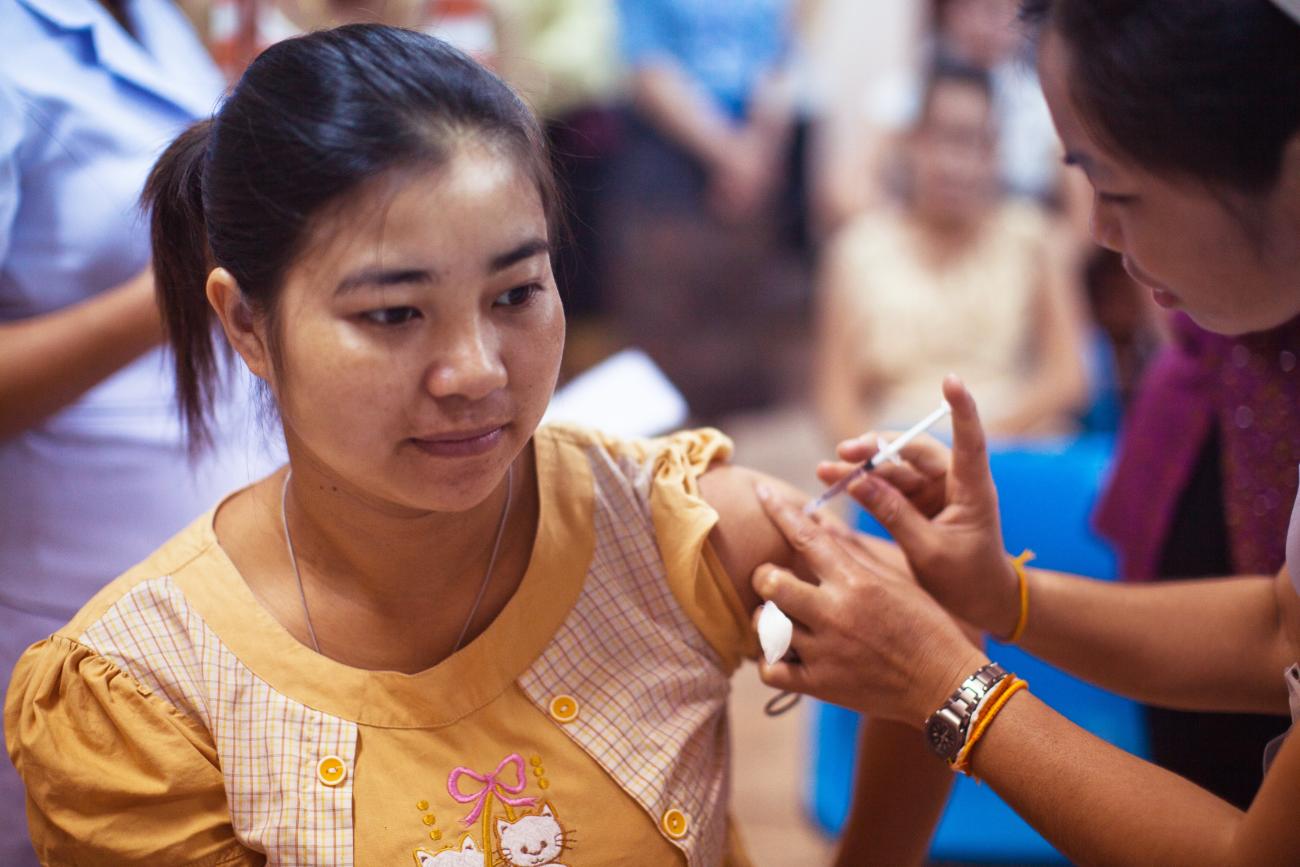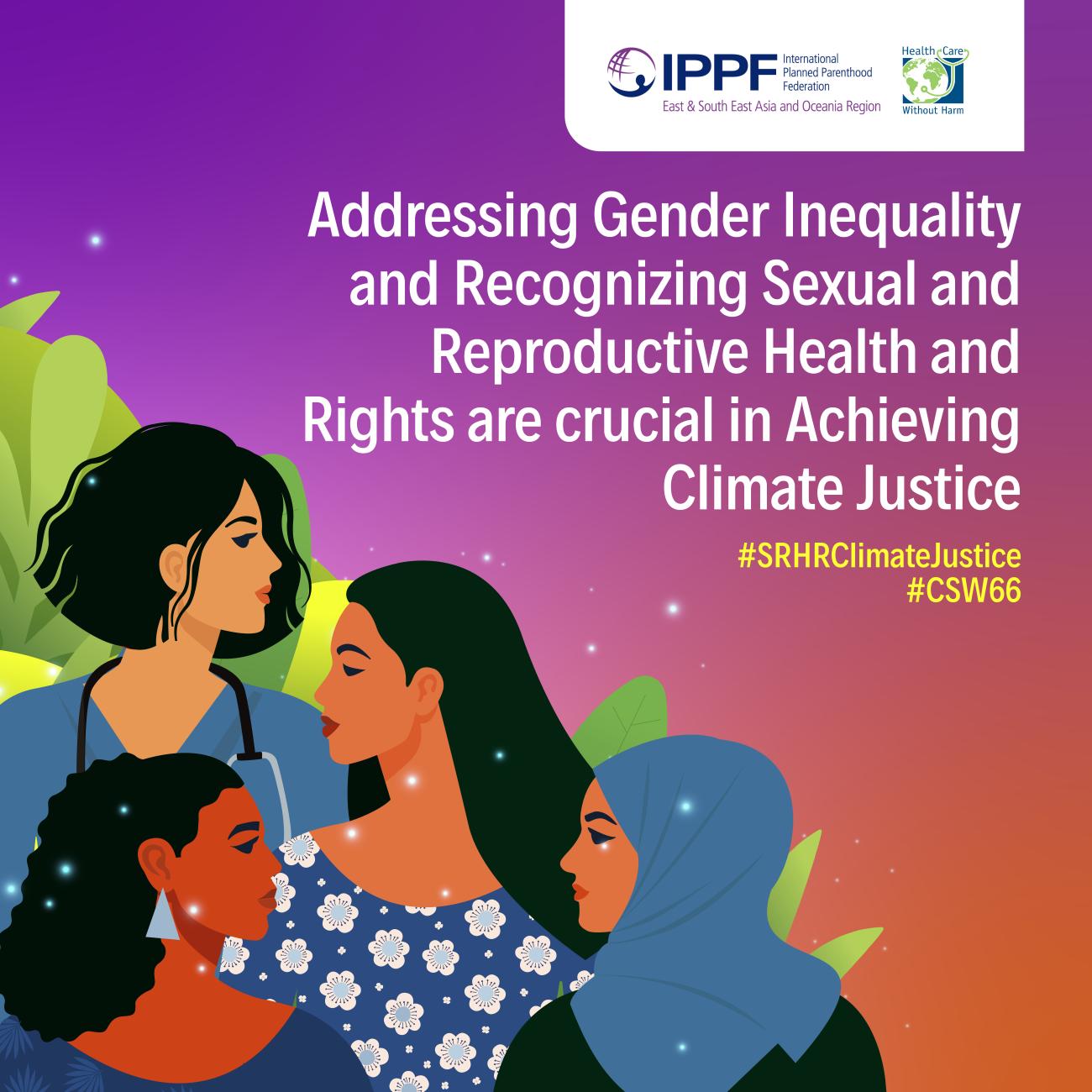The climate crisis and the current COVID-19 pandemic disproportionately impact women and girls in the Asia Pacific region, aggravate their situation, restrains their capacity, and exposes the weaknesses of the current economic, social and political system as reflected on their health and well-being.
Countries in the Asia Pacific region are among those bearing the heaviest burden of climate change. More than 87% of its population were affected by disasters that occurred in the last 40 years. The region - exposed to recurring hazards brought about by climate change and now with the spread of COVID-19 - is prone to cascading and multiple disasters. This is further compounded by high levels of inequity, low levels of social protection, and weak systems, among others. Within this context, deeply ingrained, systemic discrimination means that women and girls are at a higher risk of experiencing harmful effects of the climate crisis.
The climate crisis is a gendered crisis as it has major impacts on the advancement of gender equality. Gender inequality, in turn, affects women’s and girls’ capacity to anticipate, adapt, and recover from disasters, and to contribute effectively to resilience building. Where women and girls experience multiple and intersecting forms of discrimination, such as on account of their gender, education, ethnicity, disability or migrant status, or any other status, their vulnerability is heightened even more. The COVID-19 pandemic has not only exposed these challenges but also multiplied the risks faced by women and girls who often lack access to health services and are left out of formal policy and social protection measures.
The sexual and reproductive health and rights (SRHR) of women and girls also suffer in the context of the climate crisis. It not only impacts their access to sexual and reproductive health (SRH) services but also increases the incidence of sexual and gender‑based violence and trafficking, poses harmful impacts on maternal and child health, among others. Realization of sexual and reproductive health and rights is critical in the achievement of gender equality and the empowerment of women and girls.
The recently published report of the United Nation’s Intergovernmental Panel on Climate Change (IPCC) has highlighted these deepening inequalities and unless we take transformational action NOW, we will have even more devastating impacts, further exacerbating the suffering of billions of women and girls across the region.
Addressing gender inequality and recognizing the important role of SRHR are crucial in reducing vulnerability to natural disasters and enhancing resilience to climate change. Therefore, we call on governments in the Asia Pacific region to:
- Address underlying systemic causes of vulnerabilities to the climate crisis, and prioritize gender equality and women’s empowerment in the planning and funding of inclusive and sustainable development.
- Ensure gender-equitable participation, access to information, and influence in planning and decision-making processes around climate change adaptation and disaster risk reduction and management, in particular inclusion of indigenous and rural women, LGBTQI+ communities, and other marginalized populations.
- Recognizing the potential for multiple gains in health outcomes, using a human rights-based approach, integrate a broad range of SRH services and sexual and reproductive rights of women and girls, and other marginalised populations, in all other climate change and sustainable development plans such as national development plans, health sector plans, National Adaptation Plans (NAPs) as well as into climate change adaptation and resilience measures.
- Invest in meaningful engagement and inclusion of youth to ensure their SRHR and health needs are being addressed, increase their resilience, and increase empowerment and autonomy.
- States must respect, protect and fulfill their sexual and reproductive health and rights, including through eliminating female genital mutilation, child, early and forced marriage, sexual and gender-based violence against children, ending impunity for those who perpetrate these human rights violations, and ensuring access to SRH services and comprehensive sexuality education.
- Commit more funds to climate change mitigation and adaptation, including resources to enable health systems to decarbonize, strengthen sustainability, and build resilience to respond to existing and future climate impacts and disasters, explicitly supporting SRHR within this.
- Prioritize life-saving SRH services during extreme weather events and other climate-related disasters, by integrating the minimum initial services package (MISP) for SRH in crisis situations in emergency preparedness and disaster risk reduction strategies as well as into emergency responses.
- Coordinate and share disaggregated data, including digital and spatial, between climate and SRHR with better analysis and interpretation, which is critical to understand existing risks and vulnerabilities when it comes to health and SRHR, to inform effective strategies and policies.
- Incorporate poverty, gender equality, age-related factors, and human rights, including the right to health and sexual and reproductive rights, in government’s Nationally Determined Contributions (NDCs), reports as a strategy to deliver on their commitments to the Paris Agreement.
- Promote and establish regional forums and processes, with meaningful engagement of women’s and youth groups as well as of groups working with and representative of marginalized populations, to identify regional priority issues and current systemic challenges and come up with very specific solutions and actions.
In the weeks leading up to the 2021 United Nations Climate Change Conference (COP26), HCWH-SEA and IPPF ESEAOR announced a strategic partnership that aims to promote gender-sensitive, climate-resilient women’s and girls’ health agenda across South East Asia and the Pacific. Through joint project ideas, the regional partnership will provide communities/health facilities with information, skills, and resources on how to advance the climate, gender, sexual and reproductive health agenda in South East Asia and the Pacific. As part of the tasks ahead, both organizations shall facilitate the exchange of knowledge, tools, and build capacity among respective constituencies.


